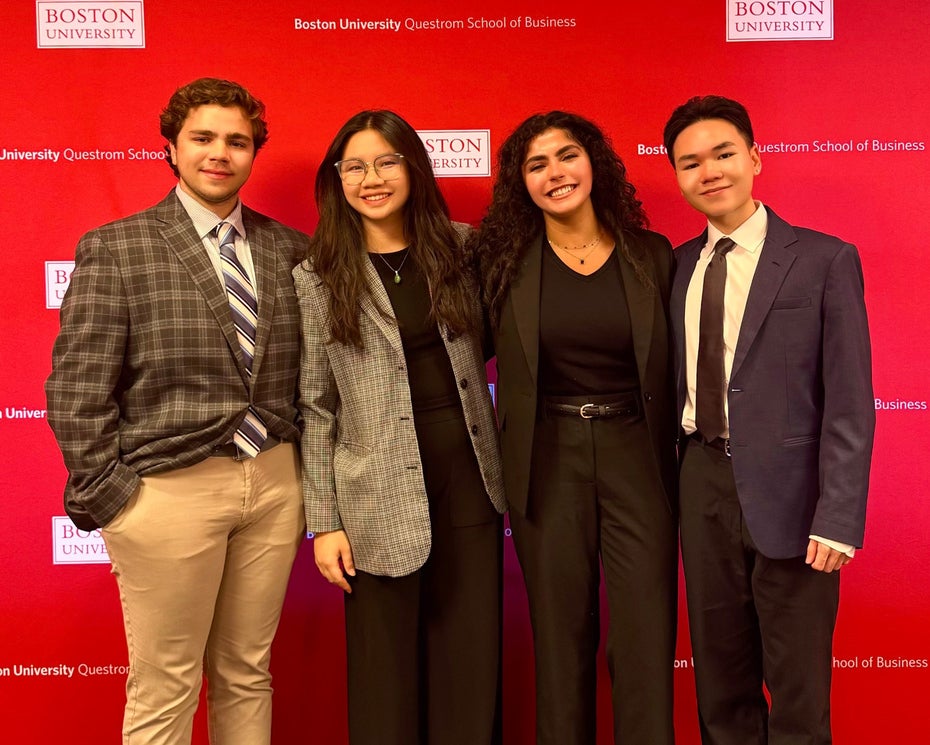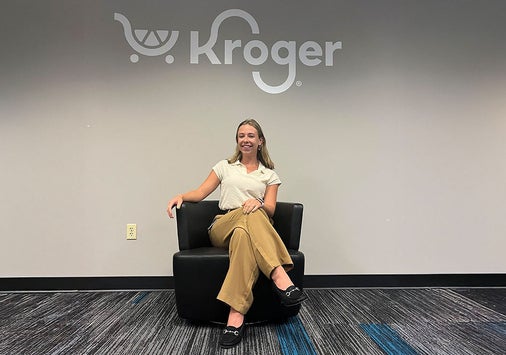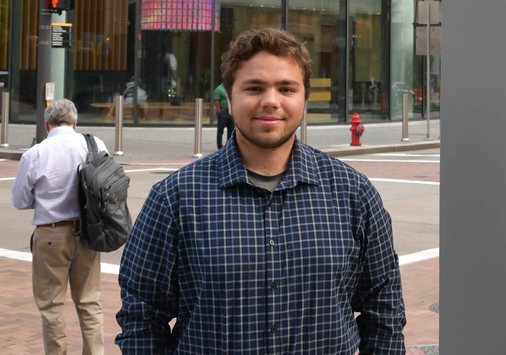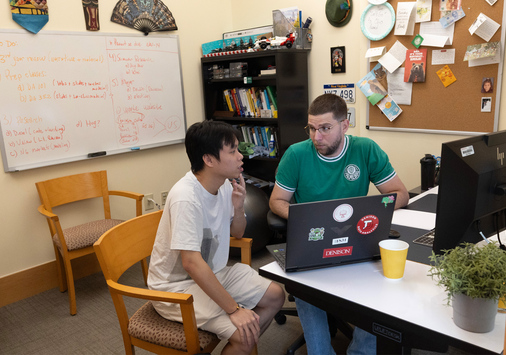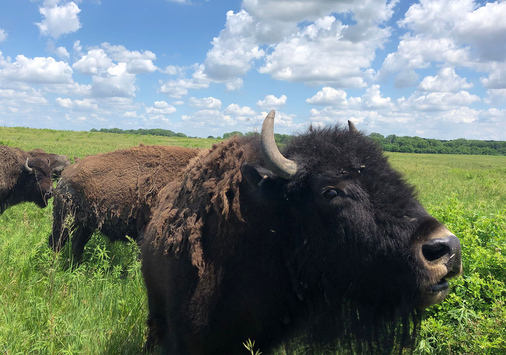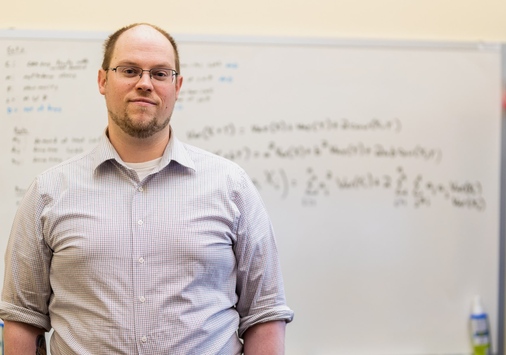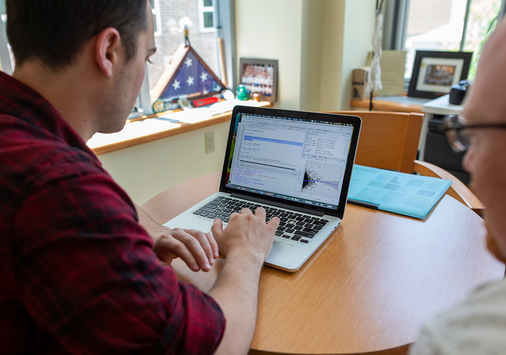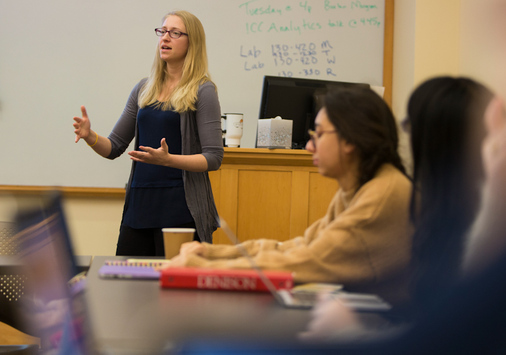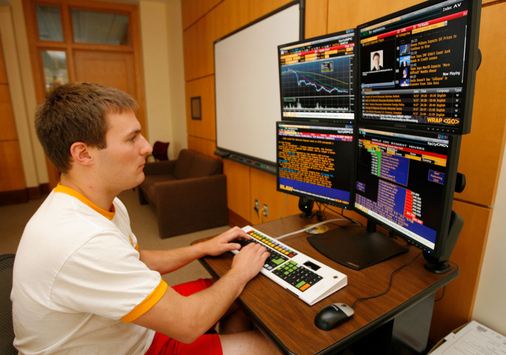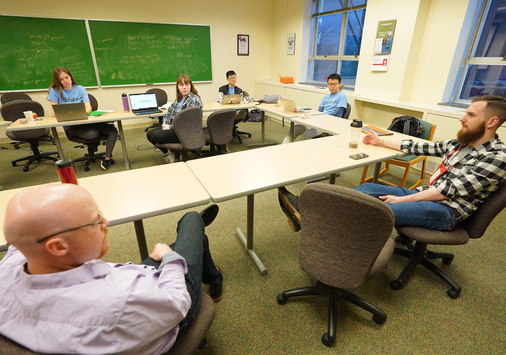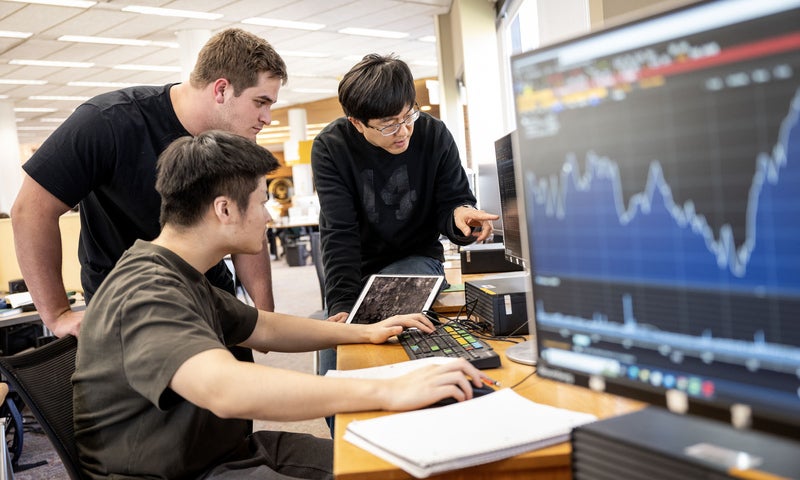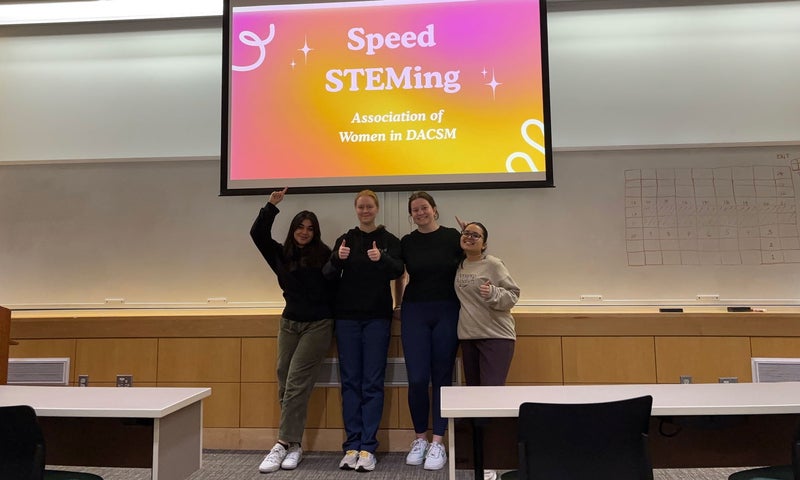About
With this powerful major, Denison students learn how to work with quantitative and qualitative data, identify puzzles, form probing questions, evaluate claims, make inferences, and effectively communicate data-driven answers to real-world problems.
Denison’s proximity to Columbus gives students access to world-class corporations and organizations, to apply their knowledge in fields as diverse as marketing and communications, product development, public health, community development, and banking and finance.
Data Analytics majors are well positioned to shape the future of countless professions, including business, marketing, finance, public health, government, education, social policy, law, and medicine, as well as scientific research in genomics, climate science, neuroscience, particle physics, and astronomy. The Data Analytics major is firmly rooted in the liberal arts, and offers students boundless opportunities to discover new knowledge within socioeconomic and ethical frameworks.
The major has four components:
- A sequence of four project-oriented data analytics courses that employ both analytic methods and liberal arts skills. Students learn ethics, interdisciplinary research, and communications skills specific to data analytics, practiced in a variety of application domains.
- Four classes in total of mathematics and computer science, which are an essential platform for the technical side of data analytics.
- Three classes of interdisciplinary work – this is the area of inquiry, such as psychology, biology or environmental studies, that the student feels most drawn to work in. Students will also undertake a capstone project in this field.
- A summer internship. Students practice what they have learned in a professional setting and then complete a capstone project informed by their internship experience.
Students who graduate with a data analytics major are thoroughly versed in the technical knowledge necessary to work with quantitative and qualitative data; they possess expertise in their field, through study and real-world problem solving; and they have ready-made networks through coursework and the internship. They are prepared to launch into the professions of their choice, ready to advance policy, do ethical research and to make a difference in the world.

